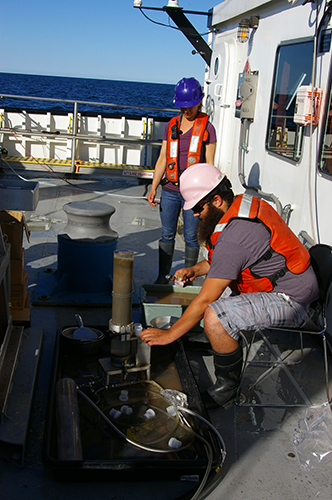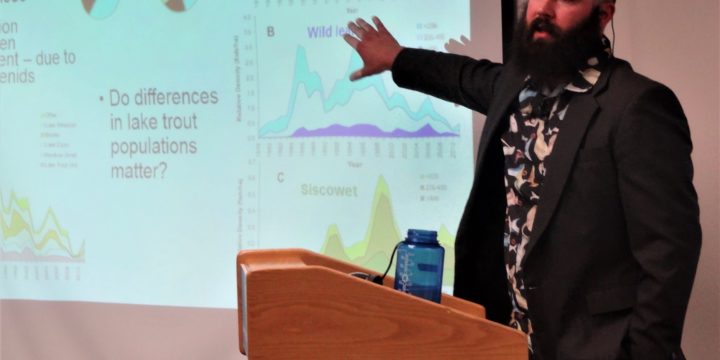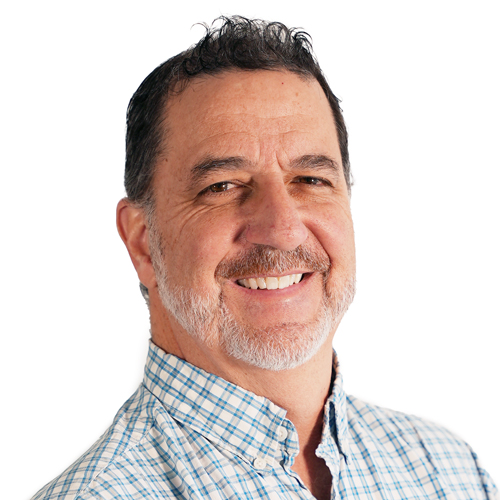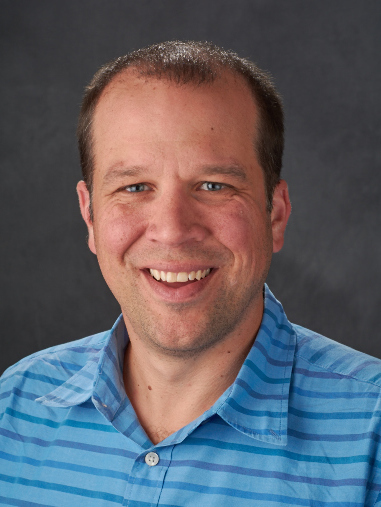Oct. 29, 2019
By Jennifer A. Smith
The University of Wisconsin-Madison and its Aquatic Sciences Center are supercharging efforts to train the next generation of scientists who will protect human health and the environment. Funding from the Environmental Protection Agency (EPA) will allow UW-Madison to partner with the EPA facility in Duluth, Minnesota, on a three-year project. Duluth is home to EPA’s Great Lakes Toxicology and Ecology Division (GLTED).
The training program, which runs through 2021, supports trainees at three levels: undergraduate students, graduate students and postdoctoral fellows. Up to eight trainees per year will be placed at GLTED.
UW-Madison students, according to their skills and interests, will be matched with EPA-GLTED researchers focusing on four EPA priorities: systems toxicology, watersheds and water resources, ecosystem services, and translational toxicology.
Said Jim Hurley, director of the Aquatic Sciences Center (ASC) and a professor of civil and environmental engineering, “The Duluth lab is recognized as one of the top laboratories in the world specializing in toxicological and ecosystem research. They also respond to current and emerging issues for environmental management. Fellows can be immersed in relevant, ascendant work in a world-class lab. It’s a terrific opportunity for trainees. It also allows faculty at UW-Madison to directly collaborate with federal researchers. It’s a win-win situation.”

Ryan Lepak, who completed his Ph.D. in environmental chemistry and technology at UW-Madison in 2018, is the first postdoctoral fellow.
“This opportunity places me with top-notch Great Lakes scientists focused on fisheries, ecosystem health, toxicology and much more. Working together, we are furthering our understanding of contaminant cycling and bioavailability of contaminants to aquatic organisms. More specifically, our work is centered on the sources of methylmercury to game fish from the mid-1970s until the present day,” Lepak said.
Hurley will provide general oversight of the program, and Jennifer Hauxwell, ASC associate director, will coordinate the undergraduate program.
“By working with both a faculty mentor in Madison and an EPA mentor in Duluth, undergraduate students will get a well-rounded experience that allows them to dig into a particular problem,” Hauxwell said. “By spending their summers doing research full time in Duluth, they’ll learn more about how science really works. We hope it will inspire some of them to go on to graduate work in water-related fields.”
Hurley and Hauxwell will serve on a project oversight committee that includes UW-Madison professors Emily Stanley (freshwater and marine sciences) and Christina Remucal (environmental chemistry and technology). Ten other UW-Madison faculty are affiliated with the project.
ASC, which houses both Wisconsin Sea Grant and the Water Resources Institute, will manage the grant. ASC has developed programming to help researchers and trainees boost the impact of their findings through effective communications and stakeholder engagement.
In the long term, the project with the EPA facility in Duluth will foster closer connections between the agency and UW-Madison, recognized as an international leader in water-related research and teaching.




